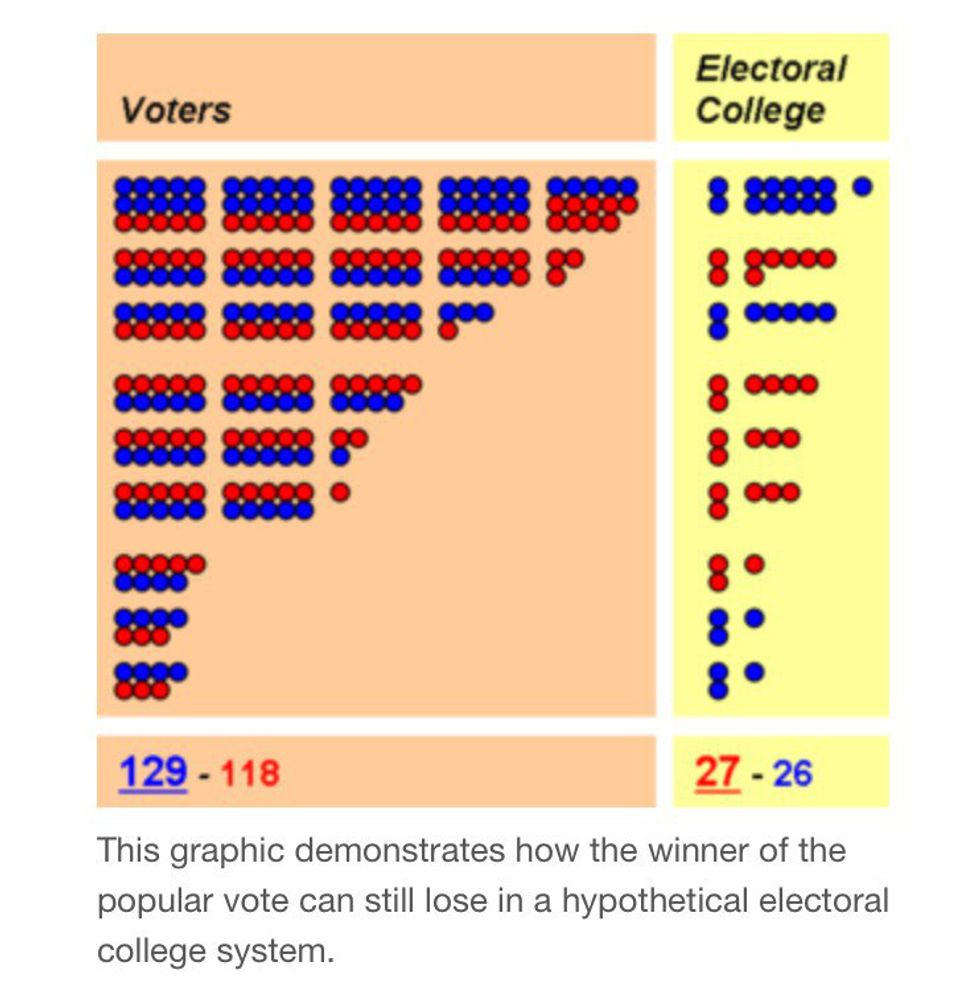The Republican National Convention was, to put it lightly, an atrocious display that essentially sums up what this entire campaign season. It began with, what looked to outsiders as, total division as delegates attempted to bring to vote a motion to review the convention rules. This was swiftly brought to conclusion by convention whips who persuaded some state's delegates to withdraw their vote eliminating the motion resulting in a short "protest" in which delegates from Colorado left the convention hall. Many believed this was a tactic to force votes to be counted by write in instead of the traditional yelling of "ay" or "nay" in order to block the nomination of Donald Trump. This issue in itself was multi-faceted and complex, but the issues didn't end there. The next day, Melania Trump was found to have plagiarized parts of her speech from Michelle Obama's speech at the 2008 Democratic Convention. The Republican Party worked desperately to unite the electorate in order to get Trump elected, some believe through the nomination of Mike Pence. Yet and still, Donald Trump and Hillary Clinton are statistically even in the Reuters poll while both hold on to significant disapproval ratings; Trump's at about 60 percent and Clinton's at about 56 percent.
So, with Clinton's announcement of her running mate, Tim Kaine, and the approach of the Democratic National Convention, the dilemma that faces the United States electorate is the way to navigate party and ideological differences with the goal of choosing the "lesser evil" between a candidate that is inexperienced and flamboyantly opinionated to the point that he appears idiotic, and a candidate that appears to be not the most trustworthy and who haves a history of committing to different causes than the one that she currently advocates on her platform. A decision of this kind is incredibly difficult to make when abstaining or moving to a third party candidate can result in the greater evil winning the most powerful seat in the entire world.
Frankly, there is no way to circumvent this unfortunate situation. As people with a mission to improve the internal and external situations of America through our opinion in the form of our vote, abstaining only removes a power that was created specifically to give the common American citizen an opportunity to have a voice and allows the media to paint the electorate as one that is uninterested when it is really one that is unimpressed. Voting for the "lesser of two evils" removes the power of our opinion as well. Typically, there will always be a position that a candidate holds that an individual disagrees with, but an individual can see a great enough potential and alliance in values and positions which will allow the person to comfortably support a candidate and give the politician their vote. It's plain to see that the current electorate does not feel that way with unfavorable poll ratings at around 60% for both candidates. Even voting for a third party candidate is a loss for the American electorate because moving the scale can cause the greater evil to win over the lesser evil if the voters for the greater evil remain committed.
But the reason that these facts don't matter in this election or any other: the people don't vote for the president of the United States. Nor did the people elect Clinton or Trump to represent their party. The former will be the responsibility of the electoral college and the latter was the responsibility of delegates chosen from each state.
While these chosen individuals are people they are not "the people". This is another loss for the American people especially in this specific election. Thankfully, only once in the modern era has the electoral college failed in electing the candidate elected by the popular vote; in the 2000 election of George Bush, but in an election as polarizing as the one that we currently face with controversial candidates, how can we feel comfortable that an electoral college will correctly choose who the electorate wants when the electorate is confused about the candidate it desires?






















